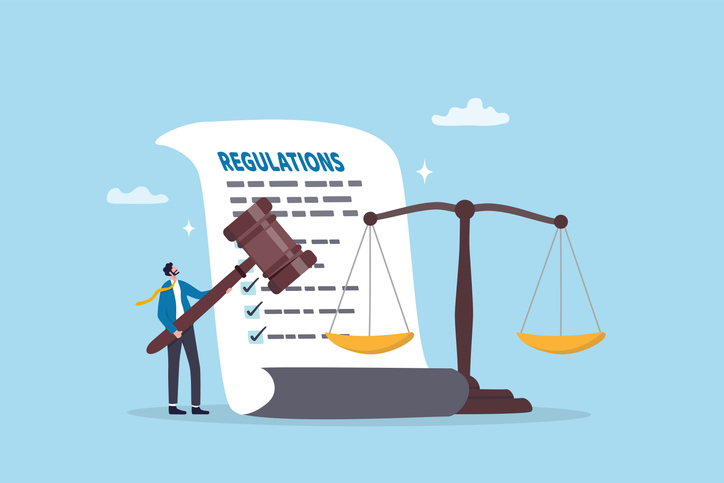The new age of business management has freed us from many capital procurement and business financing rules. While financial contingency planning has certainly become more flexible, it is important to note that this has also led to fewer opportunities for mitigating risks. Even if the economic conditions are not currently affecting your business’s profits, your business could suffer from the lack of a good financial plan.
Before understanding the tips and techniques of creating an effective plan, let’s have a look at what financial contingency planning is all about.
Understanding financial contingency plans for businesses
A financial contingency plan refers to preparing a course of action and allocating finances and resources during times of financial crisis or other emergencies. A majority of businesses have a narrow view of emergencies. These can include a fire, product failure, economic crisis, etc. Hence, financial contingency plans simply aim to stabilise the business.
Business contingency plans should not be confused with crisis management plans. The former allows you to manage emergencies through a proactive approach, but the latter refers to taking a reactive approach.
Why does your business need a financial plan?
As of October 2024, it has been reported that over 630,000 UK businesses are now in significant financial distress, more than thirty per cent higher than this time last year. However, companies can reduce the chances of insolvency by implementing an effective financial contingency plan.
These comprehensive plans aim to minimise financial loss and enable your business to remain operational, even during economic downturns. Above all, contingency plans eliminate stress and panic during financial emergencies, which enables you to improve upon and implement more effective business strategies irrespective of the regional, national or global economic conditions.
A practicable and efficient contingency plan is necessary to prevent insolvency. Ideally, you should seek advice for preparing a financial contingency plan or hire a professional contingency planning service to ensure that your business is 100 per cent secure from any kind of financial risk.
If you’re looking for some free, useful guides to help you figure out your finance problems, a worthwhile resource to take a look at is companyrescue.co.uk who have extensive information surrounding a range of cash-flow problems.
Tips to create a concrete and fool-proof financial plan
The following tips are useful for creating an effective financial plan.
Create a priority list of resources
A fool-proof contingency plan is based on the theory of minimum expense and maximum business stability and profits. Therefore, create a priority list of all your business resources and mention the resources which without, your business cannot operate. These may include IT systems, physical assets, human resource, etc.
Create a separate plan for possible risks and potential solutions
When creating the contingency plan, involve experts from each department to make sure that your business is capable of surviving any kind of risk. Create a list of possible risks along with their solutions and the resources required to mitigate or manage the risk.
Also, prioritise risks i.e. create another list of possible risks and threats which are most likely to occur. Mention the potential timeline for these risks and threats. For each threat, draft two types of plans. The first plan will provide details of strategies and techniques to minimise the intensity of risks associated with the threat. The second plan should contain techniques to mitigate the threat and strengthen your business.
Using emerging technology in financial contingency planning
Modern businesses are now also turning to advanced technologies to strengthen their financial contingency planning. For example, ERP systems and data analytics tools.
These platforms offer instant access to financial data, helping organisations stay on top of cash flow, oversee assets effectively, and identify possible financial risks at an early stage.
By integrating these solutions, businesses can remain agile, adjusting their strategies in real-time to respond more efficiently and decisively to unexpected challenges.
Include a distribution plan
You need a separate plan to distribute responsibilities to execute the financial contingency plan. The distribution plan should include details of human resource involved in the execution of the contingency plan, channel of information distribution and details of access to the organisation’s important documents before and during the crisis.
Revise and maintain
The changing market conditions expose your organisation to different types of risks. Therefore, it is necessary to continually revise and update your contingency plan and keep track of important resources.
Prioritise your plan
Despite many headwinds, the small business sector is growing in the UK. New businesses are thus more vulnerable than ever to insolvency compares to established companies. However, new businesses as well as established companies should be prepared to deal with crisis in advance with the help of a fool-proof plan.
From recession to changing market conditions or new competitors, businesses can face various types of challenges. Hence, a professional contingency plan is essential for ensuring that your business does not become insolvent during a financial emergency.
See also: Mastering disaster – Do you have a contingency plan? – Jo Gibson, operations director at First Capital Cashflow, explains the importance of businesses having contingency plans in place to mitigate against unforeseen disasters that have the potential to disrupt essential business activity





